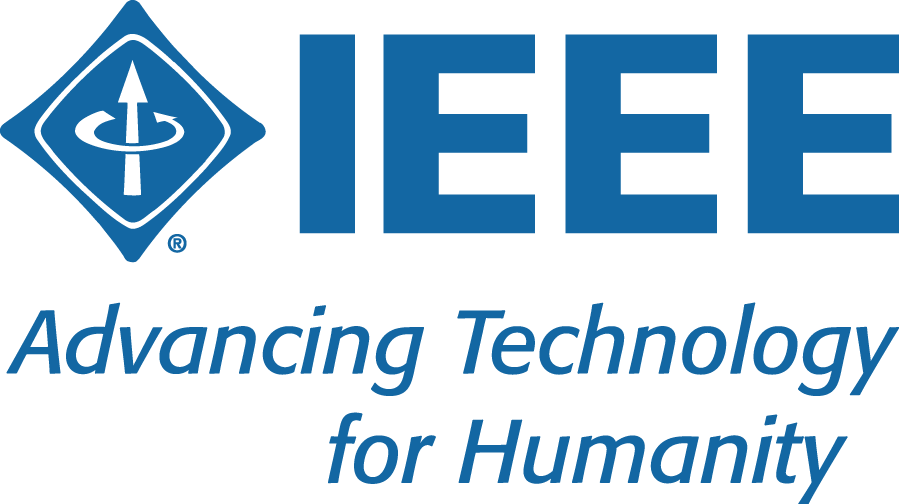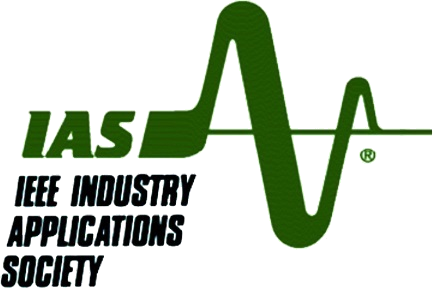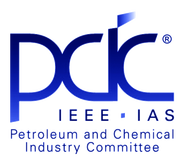ConferenceVertical Divider
Attendees
Additional Information |
The Tutorial Subcommittee of the PCIC Technical Conference is sponsoring six half-day tutorials on Thursday, September 27, 2018. Continuing Education Units, (0.35 CEU) will be awarded to each participant who successfully completes a course and submits the required CEU form and payment. Light refreshments will be provided during the sessions. A lunch will be provided between the morning and afternoon sessions, (12:00 p.m. to 1:00 p.m.) for all tutorial registrants. The price of lunch is included in the price of the tutorial, so plan to end your morning session or begin your afternoon session by having lunch with your fellow attendees.
First time attendees registered for the entire conference are eligible to attend one tutorial for the reduced rate of $50. A second tutorial can be attended by paying full registration cost. This must be indicated on the registration form and completed prior to September 1, 2018; otherwise the full tutorial fee will apply. (NOTE: To ensure there are enough handout materials for all participants, those not pre-registered will be charged full price at the door.) The following tutorials are tentatively planned to be held on the Thursday of the conference week (3 tutorials in the morning and 3 tutorials in the afternoon):
Neutral Grounding Methods to Reduce Risk of Arc Flash
Abstract: This four hour tutorial will work through the many system grounding methods that are used today and also cover mitigation of arc flash hazards by using neutral grounding system. Advantage, Disadvantages, Ground fault protection systems, Generator protection. The use of the new standards C57.32, IEEE STd 3003.1, IEEE 3003.2. How to employ design and install a safer neutral grounding system.
Instructors:
Sergio Panetta, i-Gard Ajit Bapat, Consultant Sergio Panetta is the Vice President of Engineering at I-Gard Corporation. With over 3 decades of electrical engineering experience in switchgear design, commissioning and troubleshooting, and power system protection, Sergio continues to actively increase awareness on Electrical Safety on a global front. A senior member of the IEEE, member of the IET, and has been awarded Consulting Engineering status with the PEO professional body. Sergio is a member of several industry working groups such as P1584, P1814, P3003.1, P3003.2, TC64, TC14 and is the chair of PSEC. Sergio is actively dealing with electrical safety and best practices including CSA, IEEE, IEC, and UL , Sergio is the author and owner of several US Patents related to electrical safety.
Ajit Bapat is known in the electrical distribution field having served over 40 years in the industry. His expertise in the art and science of ground fault protection is acknowledged in North America. He holds Master's Degrees in Business Administration and Electrical Engineering, specializing in Power Systems and Protection, and has particular interest in ground fault protection, digital metering systems, microprocessor based integrated systems for protection, metering, monitoring and control of power distribution systems. A Registered Professional Engineer in the province of Ontario, Life Senior member of the IEEE and was the Central Canada Council Chair of Region 7 of IEEE.
Generator Fundamentals to Practical Application
Abstract: Designing the layout of a modern power system can be a significant task with many layers of complexity. To specify a generator, a quick glance at kW rating and voltage output should be sufficient, right? This tutorial includes a collection of topics for front end consideration of generator designs to support the requirements of power systems, including:
*Generator operational theory -Electrical fundamentals, power factor, and real vs reactive power -Function and configuration of excitation system, main rotor, and main stator *Advanced concepts -Winding pitch, harmonics, circulating currents, reactances and time constants -Performance curves for system coordination, parallel operation *Mechanical considerations -Enclosures, IP ratings, and cooling methods -Marine, HazLoc, API, and other agency requirements *Control systems basics -Voltage regulator types, parallel operation control, protection schemes -Sensing and protection devices *Sizing variables and Testing Instructors:
Travis Kittleson, Nidec James Nanney, Nidec Travis Kittleson graduated from Minnesota State University, Mankato in 2005 with a bachelor’s in EET. He spent the first 7 years of his career developing control systems for automotive and industrial HVAC service equipment. In 2012 he joined KATO Engineering where he is currently the Senior EE for the Rotating Design team. Travis has delivered training seminars on machine design, application and sizing to direct customers of KATO Engineering and at several IEEE sponsored continuing education events.
James Nanney graduated in 1979 from Texas A&M with a bachelor’s in Industrial Distribution. He has been involved with the design, manufacture, application and sales of low and medium voltage motors with Baldor Electric, and TMEIC Corporation. Currently is working for Nidec Industrial Solutions Division as a Business Development Manager. A member of API 541 and 546 Committee and author of multiple articles for trade publications, he has presented papers and tutorials for IEEE PCIC dealing with motors and motor/VFD applications.
The Application of IEC/IEEE 60079-30 for Heat Tracing
Abstract: IEC/IEEE 60079-30 provides guidance for the application of electrical resistance trace heating systems in areas where explosive atmospheres may be present, with the exclusion of those classified as requiring EPL Ga/Da (traditional relationship to Zone 0 and Zone 20 respectively). This standard also provides guidance for explosive atmospheres incorporating the Division method of area classification that may be applied by some users of this standard.
It provides recommendations for the design, installation, maintenance and repair of trace heating systems including associated control and monitoring equipment. This tutorial will cover how the IEC/IEEE 60079-30 addresses the following: The key factors in selecting a type of trace heater Understanding the key elements in the basic heat loss equation Understanding the temperature requirements for trace heating in explosive atmospheres Using control design methods to optimize trace heating designs Instructors:
Ben Johnson, Thermon Rich Hulett, Thermon Ben C. Johnson is a Senior Consultant for Thermon Manufacturing Company. His career spans a broad range of industrial experience, including 48 years with Thermon and eight years in the petrochemical industry with the Ethyl Corporation and the Diamond Shamrock Corporation. Mr. Johnson was Thermon’s vice president of North American Sales for five years and Thermon's vice president of Engineering for 12 years, responsible for product application design and field and construction services. He was previously Thermon's vice president of Research and Development. He holds eight patents in the field of surface heating and is responsible for numerous new product innovations. He has authored or coauthored 25 papers for various societies. As US delegate to the International Electro-technical Commission (IEC), he is the convener for TC31 Maintenance Team 60079-30, Electrical Equipment in Flammable Atmospheres, Electrical Resistance Trace Heating and the US technical adviser for IEC TC27, Safety in Electroheat Installations. He is also a member of the US Technical Advisory Committee for IEC TC31. Mr. Johnson is a life fellow of the IEEE and was co-chair of the IEEE/NFPA Collaboration on Arc Flash Research.
Richard Hulett has 50 years of experience in engineering, R&D, marketing, and technical management. After graduating from Stanford University with a BSME (1964) and an MSME (1965) he worked for Raychem Corporation on performance rating and developing long-term reliability of self-regulating heating cables. As Technical Director in the 1980s, he led a technical effort to increase safety of electrical heat tracing systems in industrial applications. After joining Thermon Manufacturing in 1994, he worked on characterizing new metal alloy heat tracing capabilities and as Vice President of Electrical Products he worked on advancing conductive polymer heating technology. He is currently Senior Consultant for Thermon Manufacturing. Mr. Hulett is involved in standards development related to heat tracing systems. He became active in IEEE 515, CSA 130, and IEC TC20B WG10 in the early 1980s. Currently he is Chair of IEEE 515 and a member of IEC/IEEE 60079-30 MT. Mr. Hulett served on the IEEE-SA Board from 2001 to 2015 and was Chair of the Standards Board in 2011 and 2012. Mr. Hulett has authored or co-authored 15 technical papers, holds two patents, and is a Life Fellow of the IEEE.
NFPA 70E Standard for Electrical Safety in the Work Place - 2018 Edition --What has changed and why?
Abstract: This tutorial will provide key changes and rationale of changes in NFPA 70E 2018 edition. NFPA 70E continues to evolve in pursuit of enhancing electrical Safety in the workplace. OSHA considers NFPA 70E an Industry consensus standard. Safety Practices and mitigation techniques included in NFPA 70E are used industry wide to reduce risk of electrical injury to employees in the workplace. Some of the Changes in 2018 include requirements for demonstration of conformity assessment of PPE by the manufacturers, definitions of Electrical Safety program and working distance, requirements for inspection of newly installed and modified equipment prior to be placed in service, modifications in the equipment labeling requirements and addition of human error in the risk assessment procedure. The presenters are all members of NFPA 70E Technical committee.
Instructors:
Daleep Mohla, DCM Electrical D. Ray Crow, DRC Consulting James White, Shermco Industries Daleep Mohla is the Owner and Principal Consulting Engineer for DCM Electrical Consulting Services for the last 14 years after he retired from Dow/Union Carbide after 27 years of service. His company provides consulting services in NEC and NFPA 70E training, preparation and audit of electrical safety programs and facilities, and forensic investigations. Daleep is Chair of IAS Standards Department, a member of NFPA 70E Technical Committee and National Electrical Code panel 5 on Grounding and Bonding. He is an author and presenter of numerous technical papers and presentations regularly appearing at the IEEE-IAS/PCIC conference. Daleep’ s awards include IEEE-IAS Petroleum and Chemical Industry Committee 2007 David Azbill Award; and 2014 Electrical Safety Excellence award. In 2011, he was recognized by IEEE for influencing standards to include safety concepts and was awarded the Charles Steinmetz award. He is an IEEE member and was elevated to IEEE Fellow in 2006 for promoting safety concepts. He has served on multiple IEEE Standard Committees. He is Chair of IEEE 1584 WG and is a Licensed, Registered Professional Engineer in the State of Texas.
Daryld Ray Crow is a life senior member of IEEE. He is a principal member of the NFPA 70E technical committee, the current chair of PCIC Working Group IEEE 463 and is the technical editor for the technical committee IEEE 1814 In 2010 Ray received the IEEE/PCIC “Electrical Safety Excellence” award and in 2017 he received the IEEE/ESW “Outstanding Service Award”. Ray presently is the owner and Principal Technical Consultant for DRC Consulting Inc. and performs consulting work for electrical safe work practices standards, assessments/audits, electrical safe work practice training and electrical engineering projects. He graduated from the University of Houston in 1969 with a BSEE. After graduation, Ray went to work for the Alcoa providing global engineering support on the design, installation, and operation of power and rectifier systems, and electrical safety. He was a team leader for writing multiple Alcoa electrical standards including electrical safe work practice standard and training. After retiring from Alcoa, Ray worked for Fluor Global Services and Duke Energy as a Principal Technical Specialist providing design and consulting electrical engineering for plant power distribution systems and safe work practice programs, standards, and assessments/audits. Ray has Co-authored and presented technical papers and tutorials for a number of IEEE IAS PCIC conferences, IEEE IAS Pulp & Paper conferences, IEEE IAS Electrical Safety Workshop conferences, and the NETA PowerTest conference. James R. (Jim) White CESCP has been the Training Director of Shermco Industries, Inc., in Irving, Texas since 2001. Jim is a NETA certified Level IV Senior Substation Technician and is a NFPA Certified Electrical Safety Compliance Professional. Jim represents the InterNational Electrical Testing Association (NETA) as an alternate member of the NFPA Technical Committee “Standard for Electrical Safety in the Workplace” (NFPA 70E), is NETA’s principle representative on the NEC Code Making Panel CMP-13 and represents NETA on the ASTM F18 Committee “Electrical Protective Equipment For Workers”. Jim is also the principal member for Shermco Industries on the NFPA technical committee “Recommended Practice for Electrical Equipment Maintenance” (NFPA 70B). Jim is an IEEE Senior Member and in 2011 received the IEEE/PCIC “Electrical Safety Excellence” award. In 2013 Jim received NETA’s “Outstanding Achievement Award”.
Inverter and Rectifier Fundamentals
Abstract: This tutorial is an in-depth technical review of the different types of DC to AC inverters and AC to DC rectifiers used in power converters and adjustable speed drives today. The discussion begins with a summary of the power devices used. The inverter review will include 6-step, 2-level PWM to n-level PWM, voltage source and current source, along with cascade H-bridges and pre-charging methods for bus capacitors. Various methods of modulation will be presented with their resulting waveforms. The rectifier review will include single-phase, three-phase, multi-pulse and active rectifier circuits. Details of how their operation can be affected by existing line conditions and transformer configurations, and methods to minimize harmonics will be shared.
These fundamentals will help specifying and application engineers understand the terminology and the effects that can be expected when operating various types of power converters and adjustable speed drives within their facilities. Instructors:
Rick Hoadley, ABB Rick Akey, ABB Rick Hoadley is a Life Senior Member of IEEE and has been involved with AC and DC drive development and applications for his whole career. He received a Bachelor’s Degree in Electrical Engineering from Cornell University, Ithaca, NY, in 1973, followed by a Master’s Degree in 1974. Rick started at Borg-Warner Power Electronics in Ithaca, NY. In 1987 he moved to Rockwell Automation in Mequon, WI, holding engineering management positions with their Low Voltage Drives group. In 2009 Rick joined the Medium Voltage Drives group at ABB in New Berlin, WI, as a Principle Consulting Applications Engineer, creating the test facility needed for their MV drives, obtaining UL listing for the drives, and working with customers’ applications. His expertise has been on power quality and harmonics issues associated with AC drives, along with system simulations and unique drive applications. Rick has authored and presented several papers and tutorials on DC drives, AC drives, AC drive applications and AC drive harmonics at Powercon, AISE, PCIM, IEEE-IAS, PCIC, PPIC, APEC, ICEM, CWIEME, along with in-house seminars and publications for Rockwell Automation and ABB. He is the holder of five patents and three Innovation Awards all associated with AC drives. During the school year Rick teaches courses at the Milwaukee School of Engineering on circuit analysis, electromechanical power conversion including transformers, motors and generators, and on power quality. In his free time Rick created and maintains an award winning web site called “Cool Magnet Man” that provides interesting experiments and information about magnets and electromagnets for elementary through college age students. He is often contacted to give presentations to middle school students about the Wonders of Magnets.
Rick Akey (S '84, M '18) received a Bachelor of Science Degree in Electronic Engineering Technology from DeVry Institute of Technology, Lombard, IL, in 1986. Rick worked at Transcoil International as an application engineer for their harmonic mitigation products used to improve customer power quality issues. In 2001 he joined ABB in New Berlin, WI, involved with unique applications involving AC motors and drives, investigating wiring and cabling issues and performing verification testing. He is presently a Senior Application Engineer for the Low Voltage Drives group.
Variable Frequency Drives: Basics, Specification, Practical Challenges
Abstract: The tutorial will cover basics of motor theory and basics of variable frequency drives theory. Benefits of VFDs will be discussed. Then it continues with presenting various technologies available for low voltage (up to 690 V) and medium voltage (more than 2.3 kV) VFDs. At the end, presenter reviews practical challenges that end users face while using VFDs. The tutorial will be useful for those who get involved in specifying VFDs and designing VFD-Motor-Load lineups.
Instructors:
Navid Binesh, Benshaw Nicole Caparanis, Benshaw Navid Binesh graduated with MASc from Ryerson University in Electrical Engineering. During his academic research, which was focused on multi-level variable frequency drives, he collaborated closely with R&D team at Rockwell Automation working on parallel connected current source converters. Later, he joined global R&D team at Siemens Industry and was involved in various new product and application development projects. Currently, he is with Benshaw, a brand of Regal Beloit Corporation, contributing to development and applications of products. He is a member of IEEE, focusing much of his attention on Power Electronics society (PELS), Power and Energy society (PES) and Industry Applications society (IAS). He has provided several tutorials and talks on topics related to power systems, electrical motors and variable speed drives. He also collaborates with multiple technical conferences including ECCE, PEMD and PCIC as an industry reviewer. In addition to technical roles, he is currently serving IEEE Pittsburgh section as a Vice-chairman.
Nicole Caparanis, the Director of Product Management – Starters and Medium Voltage Drive, has worked at Benshaw for ten years with roles in the engineering and sales department. Nicole has her Bachelors of Science in Electrical Engineering from the University of Michigan, and her MBA from Carnegie Mellon University. |
|




